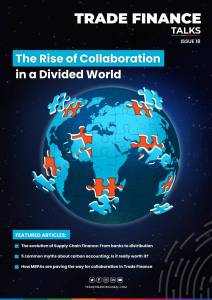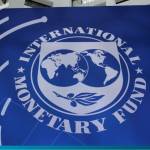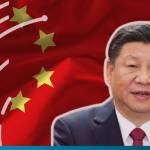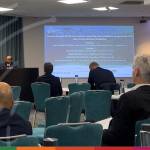Estimated reading time: 4 minutes
The international trade world is inherently spread apart. There are 7 continents, and 195 countries, with 360 million square kilometres (139 million square miles) of ocean and 38 time zones spanning the globe.
With all of the barriers that exist, the industry simply cannot physically come together very often. But once a year, Sibos allows us to do exactly that.
This year, the conference is embracing this very idea. We are collectively tackling the theme of “Collaborative finance in a fragmented world”, and it is a timely theme as well.
The world is still piecing itself together following the COVID-19 disruptions, a collective breakdown in the global supply chain, geopolitical turmoil in almost every corner of the world, and the start of a violent war in Ukraine.
The Asian Development Bank released a report showing that the trade finance gap has increased from $1.7 trillion to $2.5 trillion. Despite the best efforts by the industry, the gap continues to widen, with no clear plan for how to reverse the trend.
2024 might bring a seismic shift to the global system as well. Upwards of 31 countries are having presidential, prime minister, or chancellor elections in the next year, up to 31 if you count the UK’s election in January 2025.
That’s why the need for collective action has never been more critical, and why Sibos represents such an important chance for the industry to come together to share lessons, ideas, and solutions.
Even though the world seems to go down multiple divergent paths, the reality isn’t as bleak as it may seem. The industry is increasingly coming together to find new solutions to new problems.
As traditional lenders pull back in the face of rising interest rates and economic uncertainty, alternative sources of funding are emerging, and supply chain finance has moved beyond the confines of traditional banking models.
Cross-border payments, a topic that will undoubtedly garner attention at Sibos, have also undergone a seismic shift. The complexities that once hindered businesses are gradually being replaced by streamlined, transparent systems. This transformation is a testament to the industry’s collaborative efforts to decode and simplify the intricacies of global payments.
The urgency of climate change is a topic that no one can ignore. But this urgency has sparked collective action within the trade finance industry, from expanding carbon accounting to aligning surety with ESG efforts.
Climate change isn’t the only aspect of ESG that is bringing people together. TFG hosted an “LGTBQ+ in Trade, Treasury & Payments” to bring up a subject that is ignored far too often in our industry. People in the LGBTQ+ community, specifically in international trade, are forced far too often to hide who they are, for fear of losing their jobs. But this panel brought together some of the leading figures in TTP, offering insights and personal stories that we can all learn from.
And finally, the elephant in the room has been and will be for the foreseeable future, the emerging digital frontier. It is the driving force behind many of the international trade developments in 2023 and will be the main topic of discussion at Sibos 2023.
The transition to digital platforms is a collective journey, requiring concerted efforts from all stakeholders to bridge gaps in consumer experiences, interoperability, and security.
And this transformation has started. The UK recently passed one of the most impactful pieces of legislation in recent memory for international trade. On 20 September, the Electronic Trade Documents Act will become law, creating a clear pathway for industry-wide digital transformation.
As you delve into this edition, consider it a call to action—a precursor to the collaborative dialogues that will take centre stage at Sibos 2023. The challenges we face are monumental, but they are not insurmountable.
As always, TFG would like to thank all of our sponsors and industry partners for their thought leadership and collaboration in putting together the content that drives this magazine.





















































